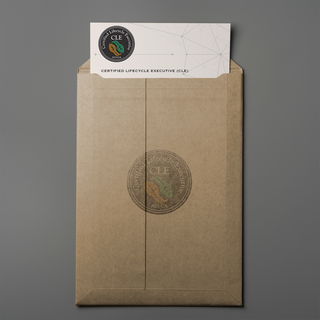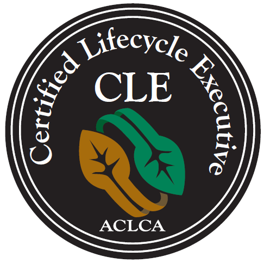CLE certification was developed in conformity with the ISO 17024 standard and demonstrates that the individual understands the basics of LCA, and can interpret and communicate LCA results to the general public.
The CLE certification is especially useful for individuals such as architects and product specifiers, purchasing agents, environmental managers, sustainability managers, educators and individuals who hire contractors to perform LCA studies.
To become a CLE
- 1) Pay the one-time fee of $500
- 2) Maintain membership of ACLCA
- 3) Pass the 1-hour CLE exam
Contents of the exam
1) What LCA can do
- Product/process/organization/service
- Indicators of environmental performance
- Support EMS
- Support market claims
- Comparisons between systems
- Tracking environmental. performance over time
- Decision support tool/hotspots
- Precision of the results
2) What LCA can’t do
- Make decisions for you
- Perform financial analysis
- perform site-specific impact assessment
- Perform hazard assessment
- Social Impact assessment
- Risk Assessment
3) ISO standards exist
- 14040- 4 steps
- 14044
- 14025
- Others in process
- 21930
- 14067(TR)
- Non-ISO standards, e.g GHG protocol, PEF, OEF
4) A Systems Approach is fundamental
- Energy and materials balance
- Impact assessment issues
- Attributional/consequential LCAs
5) Scoping: full/partial life cycles
- Concept of system boundary
- Temporal and geographic boundaries
- Cradle to grave/Cradle to gate
- Scenarios
- Functional units/reference flow
- Professional and value choices
- Normalization & weighting-- single scores
- Midpoint vs. endpoint indicators
- Cutoff rules
- Typically excluded items
6) Critical review requirements
- Internal use
- External use
- Tasks of reviewers
- Comparative assertions
- Marketing best practices
- EPD/PCR requirements
7) Quality Issues
- Use of LCACP (experts)
- Data sources/quality
- Different software
- Sensitivity & uncertainty
Impact assessment methods/e.g. single score vs. midpoints.
Adding product to your cart


